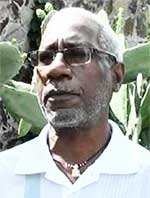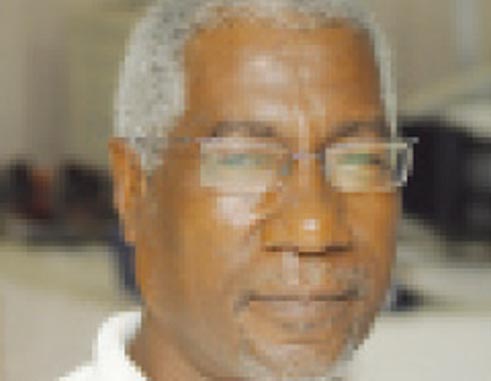
‘Reparations Now!’
That’s the call being heard the world over today, echoing the Caribbean’s original tolling of the bell in November 2013 for ‘Reparations from Europe for Slavery and Native Genocide’.
Almost six years later, the call is echoing loudly, not only in Europe but also in the United States, where, ahead of the 2020 Presidential Race, candidates for America’s top job are taking notice, latching-on and making promises to react positively, if elected, to growing demands for Reparations and related atonement in communities across America heavily impacted by legacies of Slavery.
The European Union (EU) called on member-states to release records of their roles in 400 years of Slavery and other colonial atrocities, and students at one American university started a move calling on others at all that benefited from slavery to also contribute to the payback being demanded of the guilty institutions across the USA now acknowledging their dark past.
Just before that, UK-based universities opened-up to similar acknowledgements of their benefits from proceeds of Slavery, at least one entering into discussion with The University of the West Indies (The UWI) about how best to start the process of considering how best to atone.
Interestingly, for six years too, the EU leaders have failed to collectively respond to the Caribbean Community (CARICOM) Heads of Government’s collective request for dialogue on the demands for Reparations from those European states that designed and built empires on the blood, sweat and tears of African slaves.
The growth of the Reparations Movement internationally since 2013 has seen a reawakening of the Caribbean interest generated by Marcus Garvey in the early part of the 20th Century through his United Negro Improvement Association (UNIA) ‘Back to Africa’ movement, but this time from a perspective of atonement to today’s Caribbean citizens as descendants of Africans captured and transported to the European colonies stolen from their native owners following the arrival of Christopher Columbus in 1492.
Not only has the Reparations movement grown across Europe, but also in Africa, where governments are coming under increasing pressure to emulate the CARICOM nations and seek atonement for historical injustices through reparations for slavery. The Government of Ghana (the first former African colony to gain independence) is being encouraged to take up the issue with the African Union (AU), while African Kings and Queens are talking about engaging in dialogue and cooperation with the Caribbean’s Reparations movement on common related issues.
The Reparations Movement in the USA had for a long time largely remained locked in the official drawers of the US Congress, where the HR-40 legislative proposal (championed over a lifetime by Rep. John Conyers and which seeks activation of measures to investigate how best for Uncle Sam to make Reparations to African Americans for Slavery) was held-up ad infinitum in the white-dominated federal legislature.
But the US Reparations demand differs in many ways from that of the CARICOM governments: the latter wants Europe to atone by investing in institutional projects across the Caribbean that will benefit everyone in all of the affected nations that experienced the barbarism of Slavery, while the demand in America seems to be (at this point) largely for (financial) compensation and other forms of preferential treatment for African Americans and their communities nationally, by the federal state.
But even so, there is room for continuing cooperation between the Caribbean and American Reparations movements, which has already started with mutual exchanges between the major US entities promoting Reparations and the CARICOM Reparations Commission (CRC).
The Caribbean is seeking Reparations for 400 years of Slavery, while the US demand seems so far tailored to the period from 1776, when the US war of independence concluded, with not much attention seemingly being paid to the pre-1776 period when the British and other Europeans ruled – and in fact started slavery in what is now the USA.
The US demands are usually pitched against the background that African American ex-slaves never received the ‘40 acres and a mule’ promised to each in return for their support for the independence struggle. But, here again, the British responsibility in the earlier period seems left out of the picture.
The CARICOM formula is based on an agreed approach by governments, whereas the US demands are currently being driven by united and disparate forces demanding government recognition and action.
Such differences and commonalities are routinely assessed and examined at the increasing numbers of international Reparations conventions uniting the movements across, between and at tri-continental levels, as advocates take their struggles forward and upward with the vitality of their shared experiences.
But there’s also room for the cooperation of the global Reparations movement to extend beyond current borders and boundaries, to those several other countries in other parts of the world that still have their own different experiences in pursuit of long-overdue Reparatory Justice.
The struggles and experiences of Native Americans in the USA and Canada can also be very instructive in the Caribbean better understanding the ins-and-outs of the institutional curves used by reluctant states and legislatures to blunt or block demands for atonement and respect for tribal lands and rights.
But while all these objectives can be attained over time by CRC in pursuit of CARICOM’s Reparations Plan, the process would indeed be accelerated if the current Heads of Government showed more interest in their roles at both national and regional levels.
The EU response, most likely driven by the Brussels political bureaucracy, has been to simply disregard the CARICOM request as a unit, even if a few member-states may have individually offered responses no more than acknowledging receipt of the CARICOM request for dialogue as far back as 2014.
It would help therefore, if the upcoming July 3-5 CARICOM Summit in Saint Lucia would consider the situation six years later and the Heads of Government send an appropriate response to the EU in Brussels, as well as to each of the 28 member-states, reiterating their collective commitment to pursue Reparations, whether through dialogue or international judicial means.
The CARICOM Heads need to find a way of publicly identifying with the regional Reparations drive beyond annual receipt and approval of reports.
One sure way can be to support the CRC’s efforts to encourage renaming of places of historic importance named after persons who contributed to Slavery and suffering across the region during the long days and nights of centuries of European colonial pillage and plunder.
Saint Lucia, for example, has renamed the former Columbus Square (in the center of the capital Castries) to Derek Walcott Square; the former A-Level College is now the Sir Arthur Lewis Community College; the former Victoria Park is now Mindoo Philip Park (renamed after the island’s most cherished cricketer of yore) and Vigie Airport is now The Sir George F.L. Charles Airport (renamed after the island’s first, repeatedly re-elected chief minister).
Most Caribbean nations – from Jamaica in the North to Guyana in the South – have also renamed their airports and highways after national heroes, but there are still instances of conspicuous cases such as Trinidad & Tobago’s Churchill-Roosevelt Highway, the Nelson Statue in Barbados, Nelson’s Dockyard in Antigua and Rodney Bay in Saint Lucia that proponents of renaming point to as examples.
One of the most important aspects of such an exercise would be the revelation of the true history of all those figures after whom entire provinces, cities, towns, villages, streets and places of public interest are named, which will be the sole determinant as to whether people will support the regional renaming exercise or not.
The CARICOM governments publicly and collectively endorsing such proposals in Saint Lucia in July, or on the occasion of the 6th anniversary of their original Reparations call, will therefore definitely also go a long way in encouraging regional public participation in a project that will also help set history straight in the minds of the many who still don’t know anything about the people behind some of the names they mention every day.
Endorsing CARICOM-US cooperation in pursuit of Reparations and the CRC’s regional renaming project at their Rodney Bay parley in Gros Islet will certainly boost the leaders’ image, reiterate their commitment to the Reparations cause they endorsed in 2013 and give added propelling thrust to the CRC’s pioneering and continuing efforts to identify with the Reparations causes in Africa and The Americas, Europe and beyond.













